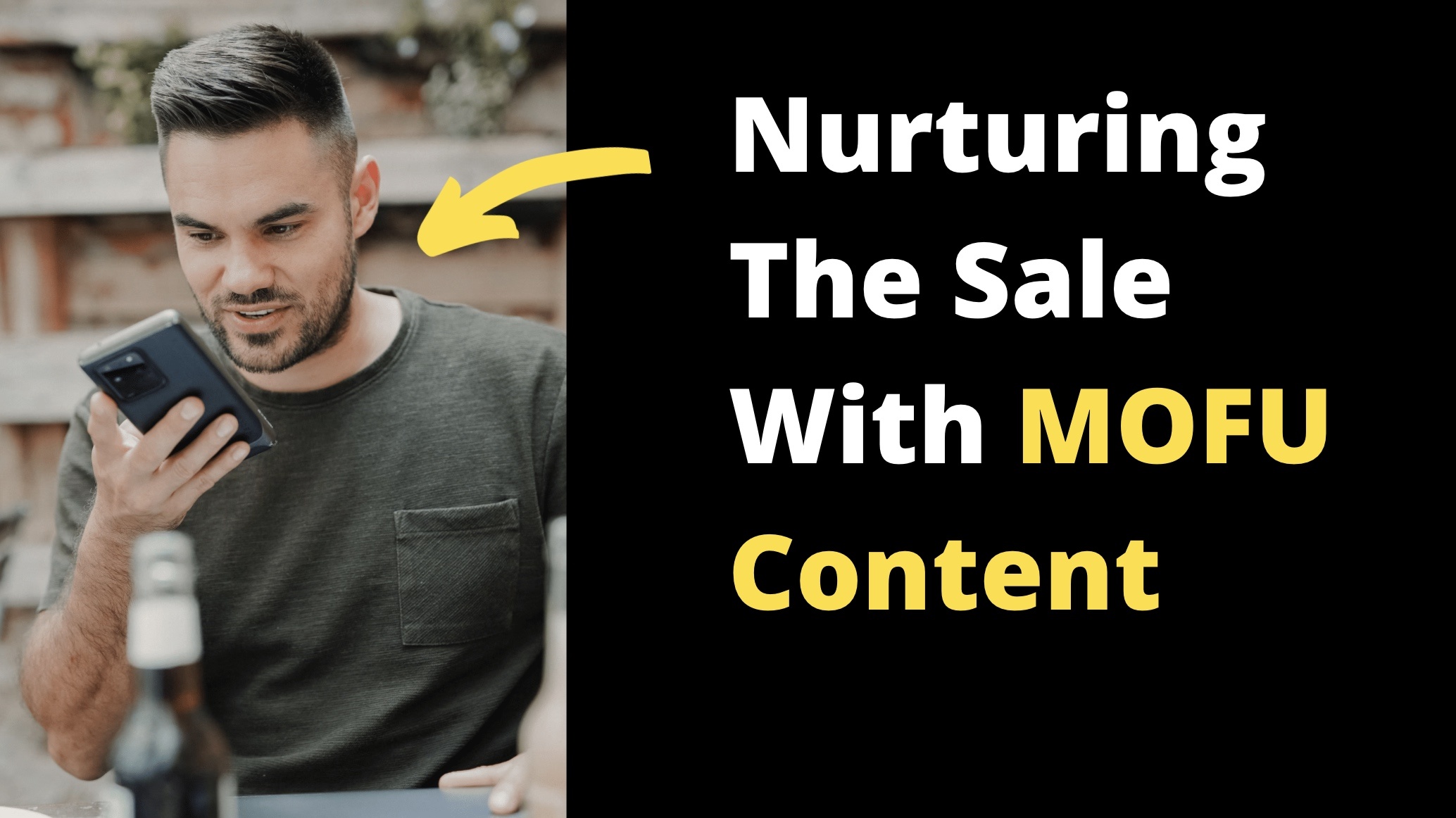8 Critical Skills The Best Copywriters All Have (& How To Develop Them)
June 14, 2020 | Sean Foo

Great copywriters transmute lead to gold.
They give the final nudge to prospects turning them into sales!
It’s no wonder that the best copywriters earn 7-figures or more per year, rightfully so considering the amazing results that they can drive.
Yet, not every copywriter will earn buckets of gold. With the market crowded as it is, only the best that will get sought out and get hired.
Thankfully there are a set of certain skills that can help transform you, whether you’re an aspiring copywriter or a marketer looking to write better, we have you covered!
Here are the 8 critical skills to master, for you to be a great copywriter.
1. Thorough Research Skills
Great copywriters are dedicated researchers.
They have to be – for they’re often thrown into the deep end of industries they know nothing about!
A copy sells only if it’s authoritative. Which means plenty of research needs to be done beforehand…
…to understand the product, industry, and competitors thoroughly.
It’s common to read beyond the top 5 Google results and dive into books published in the industry.
The famed Ogilvy even spent 3 weeks just reading about cars, to craft his best-selling Rolls-Royce Ad!

Spotting one small detail helped Ogilvy craft this winning ad.
For practical purposes though, you don’t need to read that long. (Though if you can, that’s good.)
You’ll still need to read deeply though, by knowing where to dig on the internet.
Quick Research Tips To Strike Gold On The Internet
1. Cite only high DA sources
When supporting your claims, you can’t just cite anyone.
You need to be authoritative, which means citing sources that are too!
One way of doing so is by checking the Domain Authority (DA) of the site. You can do so by downloading the free Moz toolbar.
The higher the DA, the more authoritative the site is. For sources, a DA above 50 will suffice.
2. Note down what you find
It can be tempting to read, then “let your thoughts settle”…
…to realise you only recall bits, which makes it hard to write.
No one has superhuman memory. We even forget our keys from time to time!
So note down what you find, in Word or written notes.
Bookmark interesting sources whenever you find one too.
3. Have an endless curiosity
You may have read tons of sources, but that doesn’t mean you know everything.
There might still be gaps in your research, which may include the winning detail you need!
Always ask yourself questions, to figure out what you still don’t know…
4. Know when to stop, and start writing
…but know when to stop, and start writing!
Curiosity can lead you down a rabbit hole, where there’s always more to know.
However, a finished copy still sells more than an unfinished one!
Look through your research notes. If you feel it’s enough, move on.
2. Savvy In Psychology
Great copywriters are also lifelong students of people’s minds.
They seek to understand people – their hopes, fears and frustrations – better than even these people’s wives!
After all, these forms emotional triggers they can pull to make a sale. Which is what copywriting aims to do.
To understand people, you need to first step out of your own skin.
Detach yourself from your desires, and immerse yourself in how they feel.
This means accepting people’s views, even if they clash with your own.
When you feel ready, there are plenty of places their thoughts are spilt.
How To Crawl Into Your Audience’s Skin, And Peer Into Their Innermost Desires
Thanks to the internet, there are many places where people spill their unfiltered feelings.

Reddit is a goldmine to crawl into your reader’s mind.
These form goldmines for knowing how your audience feel. They can help you understand your audience’s pain points or frustration with your competitors.
Either way, they form potent triggers you can use in your copy!
So where are these places exactly?
A. Q&A sites like Quora and Reddit
Q&A sites are great places to start searching.
Typing in e.g. “How does it feel like to…” or “How can I…” can find you detailed answers.
B. Product reviews on Amazon, eBay etc.
E-commerce sites are the best source of competitor research.
The reviews directly tell you what consumers feel about them.
C. Comments on resources like Youtube, articles etc.
Comments can also tell you how your audience feel in your given niche.
Usually the more comments there are, the more helpful (or terrible) the resource is.
D. Forums in your niche
Forums can be great places find niche-specific sentiments too.
You can find forums you need by searching “<niche> + forums”.
3. Interlink Ideas Playfully
When you’ve nailed the knowledge and research, how do you brew them together to form a cohesive whole?
That’s the question copywriters struggle with, day in, day out.
A killer copy needs to flow. Ideas need to meld together beautifully, in a way that keeps readers spellbound.
Achieving this takes plenty of experiments, and a playful, open mind.
To achieve this, great copywriters combine different ideas even if they look silly!
Some ideas may indeed turn out bad…
…but others become best-sellers that mark their entire career!
Thing is, it’s easy to discard ideas when they are still seeds.
You can only realize their potential though, if you let them sprout.
How To Pull Stunning Ideas Out Of Thin Air
Or at least, seemingly out of thin air.
Even alchemists did not try transmuting air into gold!
Instead, they used base metals like iron and lead to act as starting materials.
Likewise, to conjure stunning ideas, you need to read widely to have starting ones.
To gain a wealth of ideas which you can simmer, fuse, and extract from.
It helps to read books not business-related, be it history or fiction. Then play with ideas you find, and draw different connections.
Also…
When you’re outlining your copy, you can list down ideas you have – even if they seem silly!
Try listing at least 15 ideas, then take a 30-minutes break to let them germinate.
When you come back, find the idea that grew on you the most.
4. Awesome Headline Writing Skills
“When you have written your headline, you have spent eighty cents out of your dollar.”
As quoted from Ogilvy, the “Father of Advertising”.
If your headline doesn’t impress, no one will bother giving it a glance…
…no matter how powerful or enticing your copy is.
Which is why Upworthy writers always write 25 headlines per article, to A/B test which works the best!
With millions of content published every day, readers need a quick way to sort through the cesspool.
And clear headlines that state readers’ benefits explicitly are what helps readers do so.
Thankfully, it isn’t hard to start crafting good headlines.
Churn Out Spell-Binding Headlines On Command
There are headline analyzers and formulas to rely on, to get decent headlines when you’re starting out.
To churn out spell-binding headlines though, nothing beats practice and hard work of writing headlines every day.
Like this entertaining, yet inspiring story of how Justin Blackman of Copy Hackers wrote 10,211 headlines in 100 days!
5. Be An Amazing Storyteller
The best salespeople are great storytellers.
They share stories of heroes going through trials, and finally emerging victorious.
In between, they capture our attention fully. Our hearts wince when the hero falls, and soars when the hero finally scores.
And when they offer us a chance to be like the hero, we gladly follow along. Even if that means forking over money…
…just like the many who did after viewing John Caple’s legendary “They Laughed When I Sat Down To Play” Ad!

This legendary ad showcases the power of stories.
When we listen to stories, we can’t help but feel for them.
All parts of our brains associated with our 5 senses light up, even when we’re only listening to descriptive words.
This means we are hard-wired to be swayed by a well-told story.
How To Craft Compelling Stories That Will Sway Your Audience
All stories have a few common features. A conflict, a hero, before, and after.
To craft a compelling story, you just need to follow this structure of the typical Hero’s Journey:
The Conflict
Preferably, it is an existing pain point your customers have.
It can be the hero having no time for his kids, because he has a big project coming.
The conflict is key to your story. So make sure to spice it up, by raising the hero’s stakes.
The Hero
The hero needs to be relatable to the audience, so they will feel for him (or her).
He can be an average Joe, office worker, athlete etc. as long as he’s similar to your audience.
This is so your audience will want to put themselves in your story. Your hero needs to be highly relatable to the reader.
The Before and After
How was life like, before and after the conflict?
The bigger the contrast, the better the impact.
Just make sure the ‘after’ is a satisfying ending, one that your audience would like to have!
6. Great Writing Skills
This might sound obvious, but don’t under-estimate the importance of great writing skills!
Great writing skills speak clearly, so you connect to people.
You don’t have to swoon lyrical in every line – in fact, it’s better not to.
Instead, you need to nail down grammar, spelling and punctuation.
Small mistakes add up and annoy readers. Which breaks your spell and turns 59% of them away!
Knowing the right words to use is also a must. Which means drawing from a huge vocabulary bank.
That doesn’t mean using big, hairy words though. Leave them back in your high school days!
Small, simple words speak clearer.
The best writing flows smoothly, such that readers just keep reading on. Even if the content is several pages long!
How To Write So Smoothly, That Readers Feel Like They Are Sliding Down The Page!
Know the purpose of each sentence
What’s the purpose of the 1st sentence?
To get readers to read the next.
The same goes for every other sentence you write. They should not say too much, nor too little, but just enough to keep readers interested.
Write conversationally
Ever talked with a friend until you lost track of time?
That’s how fun, engaging conversations can be!
Write like how you speak, but do so concisely.
So your readers will also lose themselves while reading your piece.
Write one-to-one
Announcements can be boring to sit through, be it in corporate events or school.
Why? By addressing everyone, they’re not speaking to you personally.
So don’t write like an announcement. Write like you’re talking one-on-one, personally.
It also helps to use the word “you” plenty.
Use spell-checkers
Run your work through spell-checkers before you hit “publish”.
They can be Grammarly, Hemingway Editor, or even just MS Word.
The last thing you want is a grammar mistake jutting out, that grinds your readers’ slide to a halt!
7. Cares About User Experience (UX)
UX can be quite intuitive if you browse the web often.
It’s just making your text easy to browse, so readers can quickly figure what you’re writing about.
While reading on the web, readers don’t read every word. They only glance through, read the headers and first lines in an F-shaped pattern!
This means you need to bold your headers. Headlines, and sub-headers too.
Making fonts readable with 16px size, and keep paragraphs within 3-4 lines max, or leaving enough space between paragraphs, like between this and the one before.
In addition, when you provide the best UX, you’ll naturally rank higher too.
To learn more about UX, here’s a good guide to follow.
8. Willing To Take Feedback
When you’re starting out, you learn faster by having someone to critique your work.
It can be a colleague, editor, or even a client.
A third-party can provide you unbiased feedback, which can be hard to do so yourself…
…especially if you’ve put in lots of time and effort in the copy!
Even the best copywriters find ways to get feedback, through third-parties or tests.
Some go to bars to ask for comments. Except, they see if people ask how to buy their products, instead of just saying it’s good or bad.
Others do split-tests, by sending different versions of their copy to their audience and seeing which one does the best.
Either way, it helps to find ways to receive feedback, from people or numbers.
Feedback helps you grow faster, to finally be a great copywriter.

Start Boosting Your Copywriting Skills Today
The best copywriters get to where they are, not by reading all day.
Once they read enough, they take massive action – be it hand-copying old ads or writing 10,211 headlines!
Which means you should too.
Want to work on your skills? Here are 18 copywriting books to choose from, to learn the skills you need.
Here are also 18 copywriting examples to inspire you in your journey!




